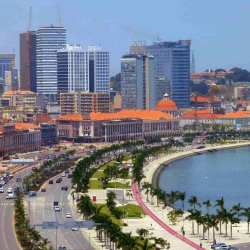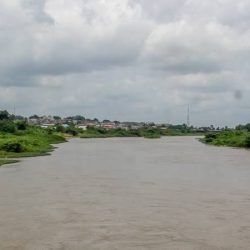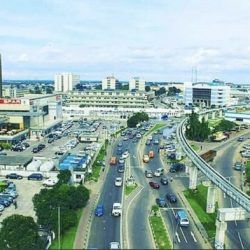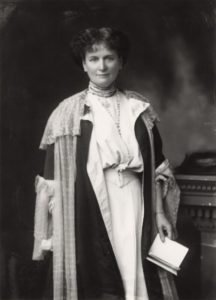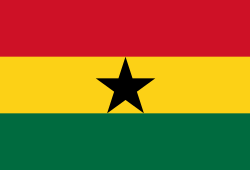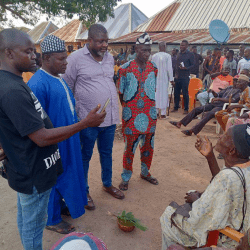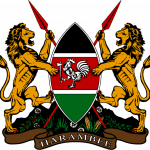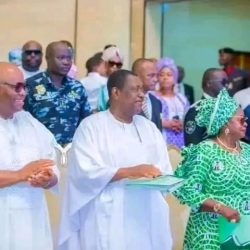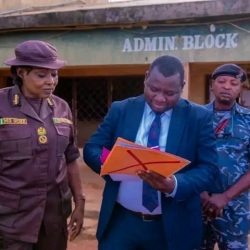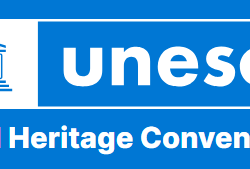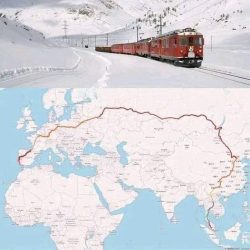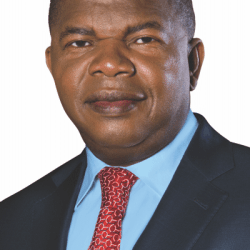The Portuguese arrived Angola in 1484 and took took colonialism.
From the 1950s onwards, the formation of more explicit political organizations by Angolans began, which, in an organized way, made their cries heard.
They promote diplomatic campaigns all over the world, fighting for independence.
The Colonial Power would not, however, give in to the proposals of the nationalist forces, provoking the unleashing of direct armed conflicts, the “Armed Struggle”.
The MPLA (Popular Movement for the Liberation of Angola) founded in 1956, the FNLA (National Front for the Liberation of Angola) which emerged in 1961 and the UNITA (National Union for the Total Independence of Angola) which was founded in 1966 stood out in the “Struggle”.
After long years of confrontation, the country achieved independence on November 11, 1975.
After 27 years of Independence and 41 years of the beginning of the Armed Struggle, peace was finally established on April 4, 2002 by the agreements signed in Luena, Moxico.
Eighty thousand UNITA soldiers lay down their arms and are integrated into civil society, the Angolan Armed Forces and the National Police.
UNITA is transformed into a political party and begins to play its role in the democratic life of the country.
For the then Head of State, José Eduardo dos Santos, National Reconciliation and the Process of Development and National Reconstruction were the main objectives of the peace definitively achieved in 2002, after long years of struggle and negotiations.
Since 1992, the year of the first general elections, multiparty democracy has ruled the political course of Angola.
The MPLA, in a context in which it had to compete for political space with UNITA and other party blocs with parliamentary seats, masterfully managed the reconstruction of one of the countries with the most promising future in Africa which, however, still faces a very harsh socio-economic reality despite its abundant wealth in natural resources.
As part of the consolidation of democracy, Angola held elections again in 2008 after a 16-year break, as a direct consequence of the new armed conflict unleashed by UNITA and its leader, Jonas Savimbi, who refused to accept his electoral defeat in September 1992.
The MPLA won this race again.
In 2012, Angola held its third election, won again by the MPLA and its candidate, José Eduardo dos Santos.
In 2017, in Angola’s fourth multiparty elections, it presented for the first time a candidate other than José Eduardo dos Santos, who had voluntarily announced such a decision earlier that year.
João Manuel Gonçalves Lourenço ran and won, who thus became the third President of the Republic of Angola in 42 years of the country’s independence, after the founding leader António Agostinho Neto and José Eduardo dos Santos.
He was invested in the highest office at the head of the State on September 26, 2017, for a constitutional term of five years.
Reference: mcta.gov.ao/ao/angola/a-historia/
More on Angola
Angola is a country on the west-central coast of Southern Africa. It is bordered by Namibia to the south, the Democratic Republic of the Congo to the north, Zambia to the east, and the Atlantic Ocean to the west.

Angola has an exclave province, the province of Cabinda, that borders the Republic of the Congo and the Democratic Republic of the Congo.



The capital and most populous city is Luanda.
Basic facts
Capital: Luanda
Official language: Portuguese
Currency: Angolan Kwanza
Government: Republic, Presidential system, Unitary state
Population: 34.5 million (2021) World Bank
Dialing code: +244
| Urban Population, 2020: | 66.8% |
| Female Population, 2020: | 51.2% |
| GDP: | US$ 58.5 Billion |
| GNI Per Capita 2016: | US$ 2,230 |
| Inflation Rate December 2020: | 25.1% |
| Crude Birth Rate 2020(per 1000): | 42.72% |
| Human Development Index (rank / 189): | 148 |
| Human Development Index (scale 0 to 1): | 0.581 |
| Membership Date: | 23/06/1980 |
| Cumulative Approvals (1980-2021): | UA 2.95 Billion |




As of 2021, the Angolan population is estimated at 32.87 million. Angola is multicultural and multiethnic. Angolan culture reflects centuries of Portuguese influence, namely the predominance of the Portuguese language and of the Catholic Church, intermingled with a variety of indigenous customs and traditions.
Angola has vast mineral and petroleum reserves, and its economy is among the fastest-growing in the world, especially since the end of the civil war; however, economic growth is highly uneven, with most of the nation’s wealth concentrated in a disproportionately small part of the population.
The standard of living remains low for most Angolans; life expectancy is among the lowest in the world, while infant mortality is among the highest.
The largest investment and trade partners are China, the European Union, and the United States.
Angola is a member of the United Nations, African Union, the Community of Portuguese Language Countries, and the Southern African Development Community.
